Seven faculty members in the UAB Department of Neurology have been promoted, and two have received awards of tenure, effective Oct. 1, 2025,
“Achieving promotion and tenure at UAB requires demonstrating excellence in our core missions—research, service, and teaching—as well as national or international recognition for scholarly achievements,” said David Standaert, M.D., Ph.D., professor and chair, John N. Whitaker Endowed Chair of the UAB Department of Neurology. “I am really pleased to see members of our faculty reaching these important career milestones.”
Congratulations to the following faculty members:
 Andrew Arrant, Ph.D. (Killion Center for Neurodegeneration and Experimental Therapeutics)
Andrew Arrant, Ph.D. (Killion Center for Neurodegeneration and Experimental Therapeutics)
Promoted to associate professor
Andrew Arrant, Ph.D., joined the UAB Department of Neurology in May 2019. His research focuses on the molecular mechanisms of frontotemporal dementia, particularly involving progranulin deficiency and lysosomal dysfunction. He earned his Ph.D. in Pharmacology from Duke University and completed postdoctoral training at UAB. Arrant is also affiliated with several interdisciplinary research centers at UAB, including the Alzheimer’s Disease Center and the Comprehensive Neuroscience Center. His work bridges basic neuroscience and translational research, contributing to the development of potential therapies for neurodegenerative diseases.
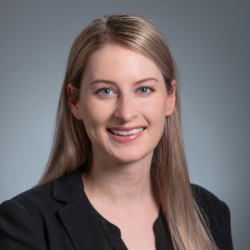 Briana De Miranda, Ph.D. (Killion Center for Neurodegeneration and Experimental Therapeutics)
Briana De Miranda, Ph.D. (Killion Center for Neurodegeneration and Experimental Therapeutics)
Promoted to associate professor and awarded tenure
Briana De Miranda, Ph.D., joined the Department of Neurology in August 2020. She earned her Ph.D. in Toxicology and B.S. in Biology from Colorado State University, followed by postdoctoral training in Neurology at the University of Pittsburgh. Her research focuses on environmental risks for neurodegenerative diseases, integrating expertise in toxicology, pharmacology, and neuroscience. De Miranda is also an Associate Scientist in several UAB centers, including the Comprehensive Neuroscience Center and Center for Clinical and Translational Science. Her interdisciplinary approach supports translational research aimed at understanding neurodegeneration caused by environmental exposures, and finding ways to treat or prevent neurologic disorders.
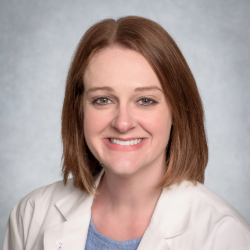 Tyler Gaston, M.D. (Division of Epilepsy)
Tyler Gaston, M.D. (Division of Epilepsy)
Awarded tenure
Tyler Gaston, M.D., joined the Department of Neurology in July 2016. She earned her M.D. from the University of South Alabama and completed residency and fellowship training at UAB, specializing in adult epilepsy. Gaston’s clinical interests include advanced medical and non-medical management of epilepsy and treatment of functional/non-epileptic seizures. She serves as the Associate Director of the Birmingham VA Epilepsy Center of Excellence and has established a regional referral center for the treatment of functional seizures at the VA. She is the Director of Epilepsy Education for the department and serves as both a Clinical Skills Scholar and Learning Communities Lead Mentor at the Heersink School of Medicine. Her research interests include pharmacological treatments for epilepsy, treatments for functional seizures, and new-onset epilepsy in older adults.
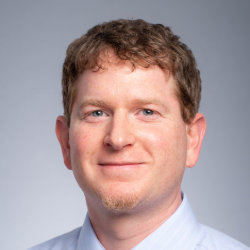 Adam Gerstenecker, Ph.D. (Division of Neuropsychology)
Adam Gerstenecker, Ph.D. (Division of Neuropsychology)
Promoted to associate professor
Adam Gerstenecker, Ph.D., joined the Department of Neurology in September 2015. He holds a Doctorate in Clinical Psychology from the University of Louisville and a Master’s from Murray State University. His research and clinical interests span cognitive neuroscience, neurodegenerative diseases, and psychological assessment, with appointments in the UAB Alzheimer’s Disease Center and the Multiple Sclerosis Center. Gerstenecker’s work integrates psychological science with neurology to improve diagnostic and therapeutic approaches for cognitive disorders.
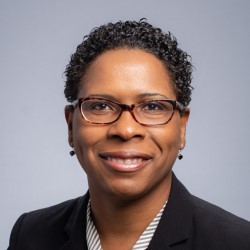 Michelle Gray, Ph.D. (Killion Center for Neurodegeneration and Experimental Therapeutics)
Michelle Gray, Ph.D. (Killion Center for Neurodegeneration and Experimental Therapeutics)
Promoted to professor
Michelle Gray, Ph.D., joined the Department of Neurology in September 2008 as an Instructor and was promoted to Assistant Professor in 2010. She holds a Ph.D. in Molecular Biology from the Ohio State University and completed postdoctoral training at University of California Los Angelas’ Semel Institute for Neuroscience and Human Behavior. Her research spans Huntington’s Disease and glial biology, with active roles in UAB’s Comprehensive Neuroscience Center and the Killion Center for Neurodegeneration and Experimental Therapeutics. Gray also contributes to interdisciplinary efforts across neurobiology and neurology, reflecting her broad expertise in both clinical and experimental neuroscience. Her research program has been funded by the National Institute of Neurological Disease and Stroke and the National Institute of General Medical Sciences. She is actively engaged in graduate student training as the Director of the Graduate Biomedical Sciences Neuroscience theme and Associate Director of the Roadmap Scholars program. She has served in leadership roles as a member of the Board of Trustees and Chair of the Scientific Advisory Board for the Huntington’s Disease Society of America and a member of the Scientific Advisory Board of the Hereditary Disease Foundation, the two premier Huntington’s Disease-focused foundations.
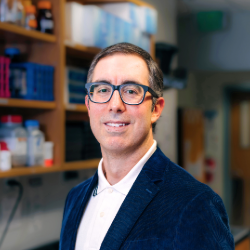 Jeremy Herskowitz, Ph.D. (Killion Center for Neurodegeneration and Experimental Therapeutics)
Jeremy Herskowitz, Ph.D. (Killion Center for Neurodegeneration and Experimental Therapeutics)
Promoted to professor
Jeremy Herskowitz, Ph.D., joined the Department of Neurology in April 2014. He earned his Ph.D. in Microbiology from Emory University and has held multiple interdisciplinary appointments across the fields of neurobiology, cognitive sciences, and biochemistry, with current active roles in UAB’s Civitan International Research Center, Alzheimer’s Disease Center, Comprehensive Neuroscience Center, and the Killion Center for Neurodegeneration and Experimental Therapeutics. Herskowitz’s research at UAB focuses on the molecular and cellular mechanisms underlying Alzheimer’s disease and related dementias. His work is supported by multiple grants from the National Institutes of Health and other agencies, targeting areas such as synaptic dysfunction, tau pathology, and neuroinflammation. A key theme in his research is the identification of early biomarkers and therapeutic targets that could slow or prevent neurodegeneration. His lab employs advanced techniques in molecular biology, imaging, and neuropathology to study human brain tissue and experimental models, aiming to translate findings into clinical applications.
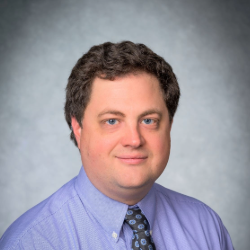 Michael Lyerly, M.D., MSPH, FAAN (Division of Cerebrovascular Disease)
Michael Lyerly, M.D., MSPH, FAAN (Division of Cerebrovascular Disease)
Promoted to professor
Michael Lyerly, M.D., MSPH, FAAN, joined the Department of Neurology in July 2013. He earned his M.D. from UAB and completed residency and fellowship training at UAB Hospital. He is the director of the Birmingham VA Primary Stroke Center and consultant for the VA National Telestroke Program. At UAB, he is the stroke medical director for the acute teleneurology program, a network covering over 35 hospitals across Alabama. He is actively involved in medical education at the Heersink School of Medicine, serving as the clinical co-director for the Neurosciences Module and as the Vascular Neurology Fellowship Program Director. His research focuses on stroke systems of care, particularly telemedicine systems, and he has been the site principal investigator for several clinical trials in stroke, such as PRISMS and ARCADIA, reflecting his commitment to advancing stroke diagnostics and therapeutics.
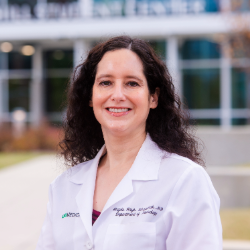 Angela Shapshak, M.D. (Division of Cerebrovascular Disease)
Angela Shapshak, M.D. (Division of Cerebrovascular Disease)
Promoted to professor
Angela Hays Shapshak, M.D., joined the Department of Neurology in July 2014. She earned her M.D. from Tulane University and completed residency training at Washington University, followed by a fellowship at Kaiser Permanente. Her clinical and research interests span neurocritical care, stroke, and emergency neurology, with a strong focus on interdisciplinary collaboration. Shapshak’s research focuses on improving outcomes in neurocritical care and acute stroke management. Her grant-supported work, focused on intracerebral hemorrhage and acute stroke, includes studies on optimizing emergency neurological interventions and enhancing diagnostic protocols in critical care settings. She is also involved in collaborative research aimed at refining treatment strategies for cerebrovascular disorders, contributing to advancements in both clinical practice and translational neuroscience.